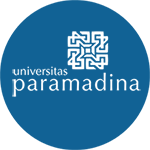LITERASI ASURANSI SYARIAH SAAT KONGRES MUSLIMAT NAHDATUL ULAMA DI SURABAYA
Abstract
Islamic financial literacy, particularly in Sharia insurance, remains relatively low in Indonesia, including among members of Muslimat Nahdlatul Ulama (NU). Sharia insurance plays a crucial role in providing financial protection based on Islamic principles, eliminating elements of gharar (uncertainty), maysir (speculation), and riba (usury), which are commonly found in conventional insurance. This community service program aimed to enhance the understanding and awareness of Muslimat NU members regarding the concepts, benefits, and mechanisms of Sharia insurance through a financial literacy lecture held as part of the 18th Muslimat NU Congress, conducted on Friday, February 14, 2025, in Surabaya, Indonesia. The program was implemented in the form of an interactive lecture, covering the fundamental differences between conventional and Sharia insurance, the principles of ta’awun (mutual assistance) and takaful (joint responsibility) in Sharia insurance, and the Indonesian National Sharia Board (DSN-MUI) fatwas on insurance and the waqf of insurance benefits. Additionally, a discussion and Q&A session allowed participants to clarify their understanding and explore the practical applications of Sharia insurance in their daily lives. The results of the program indicate a significant increase in participants' understanding of Sharia insurance, as many who were previously unfamiliar with the concept became aware of the importance of Sharia-based financial protection. As a follow-up, it is recommended that similar educational initiatives be conducted continuously, through collaborations between Muslimat NU, Sharia financial institutions, and regulatory bodies, while also utilizing digital platforms to expand public access to Sharia financial literacy. With improved knowledge and awareness of Sharia insurance, more Muslims will be able to access financial protection that aligns with Islamic values, contributing to the empowerment and sustainable economic development of the Muslim community.
Keywords: Sharia Insurance, Financial Literacy, Muslimat NU, Community Service, Islamic EconomicsFull Text:
PDFReferences
Ardhina, A., Ali, Z. M., & Indra, I. (2024). The influence of Islamic financial planning in buying life insurance. International Journal of Economics (IJEC). https://doi.org/10.55299/ijec.v3i1.824
Firdausi, M. R. A., & Kasri, R. A. (2022). Islamic financial literacy amongst Muslim students in Indonesia: A multidimensional approach. AL-MUZARA’AH. https://doi.org/10.29244/jam.specialissue2022.77-94
Hs, S. (2021). Strengthening Islamic financial literacy education for millennial generation. AL-ISHLAH: Jurnal Pendidikan. https://doi.org/10.35445/alishlah.v13i3.1290
Maf'ula, F., Hakimi, F., & Assadam, E. (2023). Socialization of Islamic financial contracts and products as an endeavor to increase financial literacy in rural areas. As-Sidanah: Jurnal Pengabdian Masyarakat. https://doi.org/10.35316/assidanah.v5i2.491-502
Rahmatia, A., Wijaya, A. P., Saputra, A. D., & Ma’ruf, M. I. (2022). Islamic financial literacy: Evidence from Indonesian urban middle-class women. Journal of Islamic Economic Laws. https://doi.org/10.23917/jisel.v5i2.18467
Rosadi, A. A., Alexakis, C., & Putri, A. P. (2024). Enhancing Islamic financial literacy in Indonesian youth generates broader societal benefits. PEOPLE: International Journal of Social Sciences. https://doi.org/10.20319/pijss.2024.101.1326
Santoso, I., Handayani, T., Monoarfa, R., Umi, T., & Hulopi, K. (2023). Factors and actors in the development of Islamic financial literacy: Experience from Indonesia. International Journal of Professional Business Review. https://doi.org/10.26668/businessreview/2023.v8i7.2667
Sula, M. S. (2016). Principles Of Islamic Insurance (Prinsip-Prinsip Asuransi Syariah) Life, General and Social Insurance. Syakirsula Institute: Depok.
Tubastuvi, N., & Rusydiana, A. S. (2024). Prioritizing Islamic financial literacy for MSMEs in Indonesia. Islamic Economics Methodology. https://doi.org/10.58968/iem.v3i1.522
Widityani, S. F., Faturohman, T., Rahadi, R. A., & Yulianti, Y. (2020). Do socio-demographic characteristics and Islamic financial literacy matter for selecting Islamic financial products among college students in Indonesia? Journal of Islamic Monetary Economics and Finance. https://doi.org/10.21098/jimf.v6i1.1057
Zusryn, A. S., Rofi’i, M., & Gani, A. N. (2021). Islamic financial literacy program in Generation Z Islamic senior high school students. Abdimas: Jurnal Pengabdian Masyarakat Universitas Merdeka Malang. https://doi.org/10.26905/abdimas.v6i4.5365
DOI: https://doi.org/10.71312/mrdimas.v1i1.258
Media Resonansi Pengabdian Masyarakat (MRDIMAS) Indexed by:
Lembaga Penerbit: Taksasila Edukasi Insani
Kontak: Tri Ananto
Alamat Resmi Penerbit: Jl. Cireundeu Raya No.1A, RT.002/RW.06, Kelurahan Cireundeu, Kecamatan Ciputat Timur, Kota Tangerang Selatan, Banten 15419.
Copyright © 2025 Media Resonansi Pengabdian Masyarakat (e-ISSN: 3090-2258 )
Media Resonansi Pengabdian Masyarakat © 2025 by Taksasila Edukasi Insani is licensed under Creative Commons Attribution-ShareAlike 4.0 International









